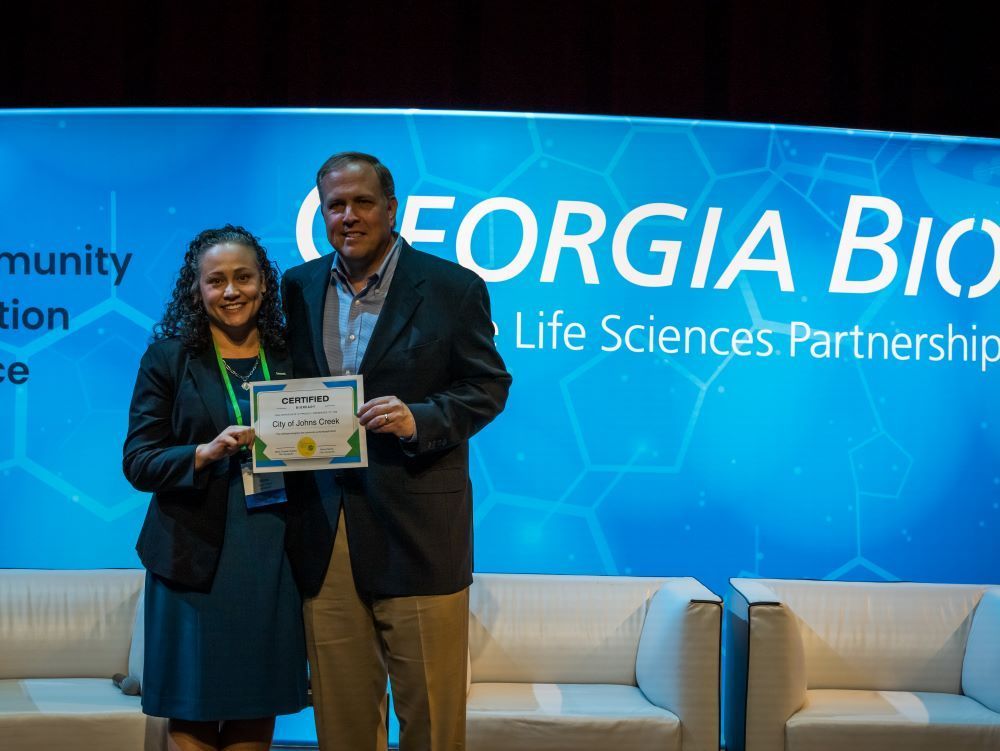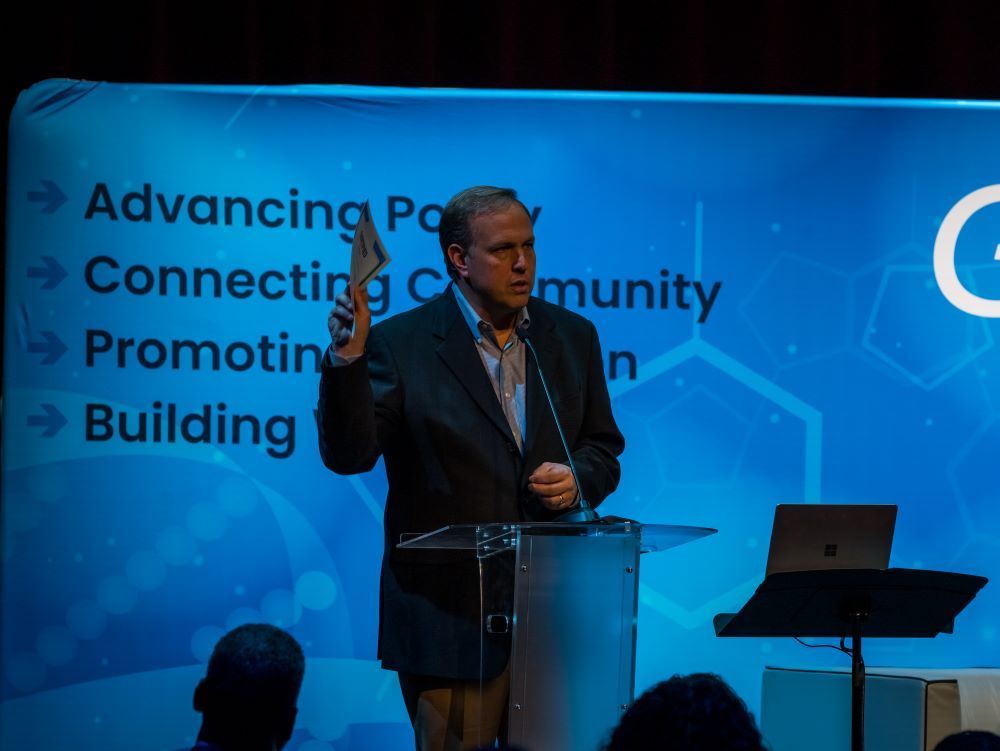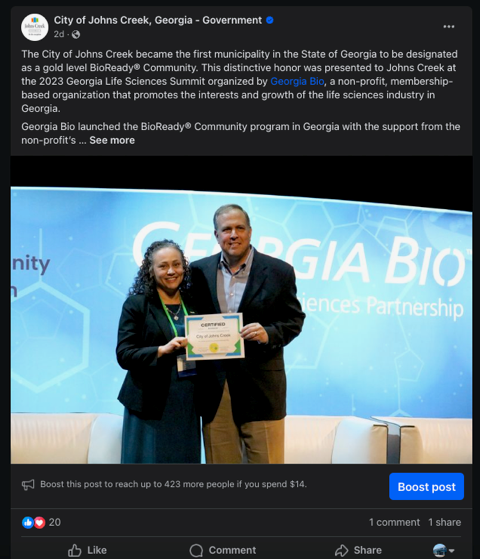Johns Creek Named First “BioReady Community” in Georgia

As the life sciences sector in Georgia continues to grow at a rapid pace, the need for bioready sites grows. As just the second state in the country to formally adopt such a program, the BioReady Community program will allow Georgia’s municipalities to showcase biotech-zoned science parks, streamline permitting, build a robust infrastructure, and identify biotech-friendly sites more effectively in the interest of attracting companies interested in relocating.
After lunch Maria announced that the City of Johns Creek is the first municipality in the state to achieve this designation.

Johns Creek Mayor John Bradbury said, “We need to challenge each other. We can push the ball forward at a grassroots level .… And hopefully that’s going to mean a bigger ecosystem for this industry in our state.”
Given the industry’s large footprint
in Georgia including 78,000 direct jobs across 4,000 establishments, nearly 215,000 total jobs and over $50 billion in economic impact, Georgia cities and towns are increasingly adopting local policies that greatly ease the pathway for renovation or new construction of biotech laboratory and manufacturing facilities.
Georgia Bio’s counterpart in Massachusetts, MassBio
, has developed a rating system to determine a municipality’s readiness to host biotechnology facilities based on the community’s zoning practices and infrastructure capacity. BioReady® rates these communities in three tiers from Bronze to Gold. Through these BioReady® ratings, Georgia Bio seeks to provide cities and towns a platform to effectively tell their stories to the biotechnology industry that will ultimately help real estate developers and biotechnology companies find the most favorable destinations to locate.
AtlantaInno
and Atlanta Business Chronicle Reporter Rebecca Grapevine noted
, “Earlier this year, Johns Creek tallied a win when Boston Scientific Corp. (NYSE: BSX) committed to a nearly quarter-million-square-foot lease at the former State Farm campus. The expansion could bring up to 340 jobs, the company said.” [Note: subscription required.]
Click Here to View the Georgia BioReady Page & Learn How to Apply
—————————–
Below are Links to the John’s Creek Announcements

The post Johns Creek Named First “BioReady Community” in Georgia appeared first on Georgia Bio.





